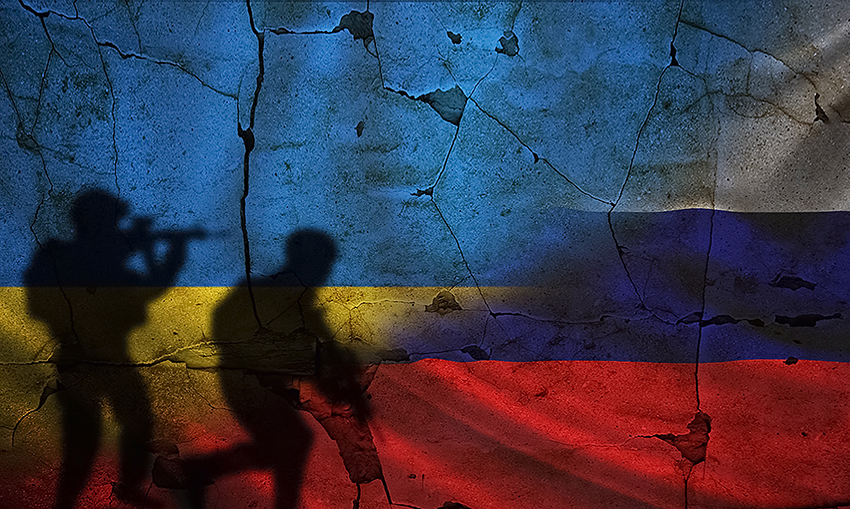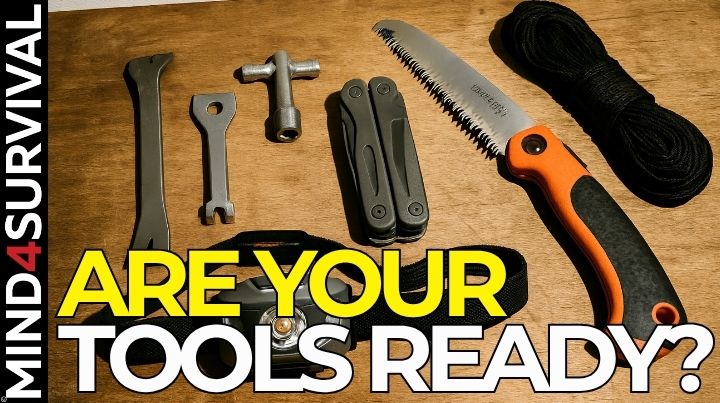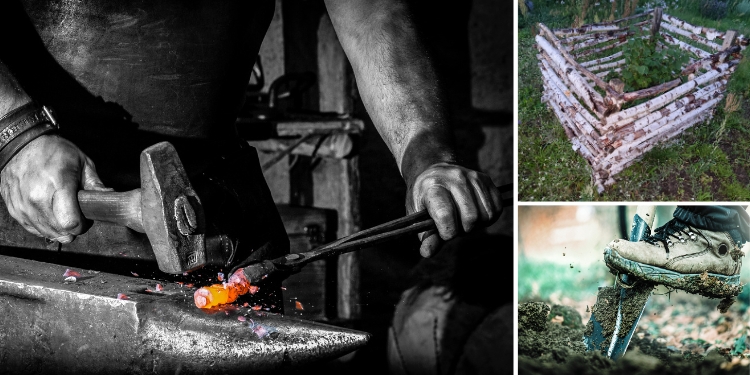Life-Saving or Lethal? 12 SHTF Essentials That Cut Both Ways
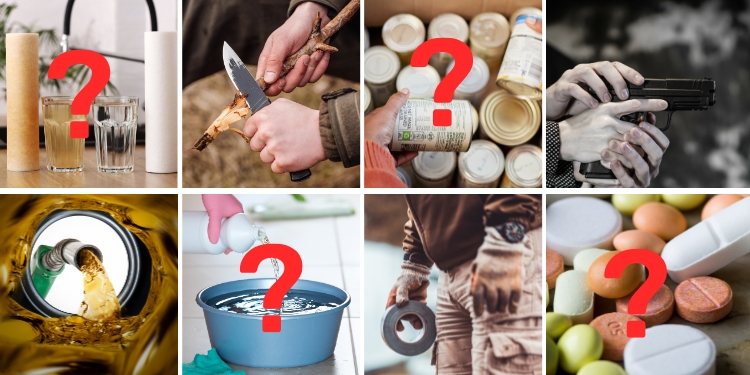
When the grid goes down and chaos takes over, the gear you’ve stockpiled can mean the difference between life and death. There is a big problem, though, that many preppers tend to disregard: the same items you count on to save your life… can just as easily endanger it.
That bottle of whiskey? It might buy you a favor or cloud your judgment when it matters most. Your knife? It can help you prepare your food or fall into the wrong hands and be used against you.
When society collapses, what you don’t know about your own gear can put you six feet under. Here are 12 survival items every serious prepper should own, but also must understand completely.
Firearms
When the rule of law evaporates, your firearm becomes your ultimate equalizer. It protects your retreat, secures your supplies, and puts fresh meat on the table. In the chaos, it’s often the only thing standing between your family and those who’d take everything you’ve worked for.
On the other hand, a firearm is only as safe as your weakest security protocol.
Leave it unsecured for five minutes, and it could be in the hands of a desperate neighbor, or worse, pointed back at your family. Handle it without proper training, and you might ventilate someone you love instead of the threat. Hesitate when it counts, and you’ve just armed your enemy.
Your EDC is a responsibility that never sleeps. Lock it down. Train constantly. Respect every round. Because in SHTF, there’s no such thing as an “accidental discharge”. Only fatal mistakes.
Knives
Every prepper worth their salt carries quality steel. Your knife is your backup to your backup: cutting cordage, processing game, building safe shelter, and handling close-quarters threats when ammo runs dry.
But steel doesn’t discriminate between friend and foe, and it sure doesn’t forgive sloppy technique.
One misplaced cut in a world without trauma surgeons means a severed tendon, arterial bleeding, or a bone-deep infection that turns septic. In close combat, your own blade can be stripped away and used against you faster than you can blink.
A dull knife forces you to use more pressure and that’s when accidents happen. Keep your edge sharp, your grip secure, and your blade discipline razor-tight.
Water Filters
Clean water is non-negotiable, no matter what. A quality filter can shield you from invisible killers like E. coli, giardia, and cryptosporidium. But here’s the hidden danger: filters fail silently.
A cracked casing, a clogged membrane, or an expired cartridge can all let contaminants slip through without you noticing, until you’re too sick to recover.
There’s an important alternative for anyone serious about long-term water security: The Water Freedom System. This innovative technology, used by military forces in the U.S., UK, Israel, and India, pulls moisture directly from the air, turning it into clean, drinkable water.
It’s a practical, renewable solution that could be the difference between dehydration and survival. Take a closer look here.
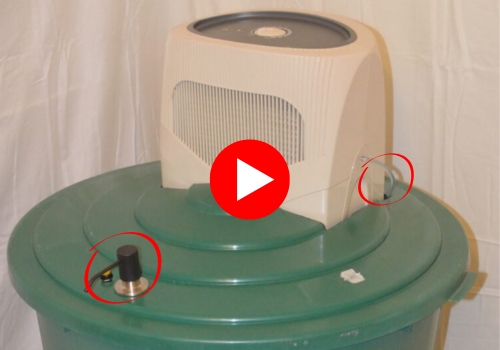
If you want an alternative way to access water, this backpack-sized water generator helps you produce up to 50 gallons of it daily.
It gives you grid independence and access to an endless supply of clean water, which you can use both post-SHTF and in everyday life for cooking, drinking, and other household needs.
Don’t wait until you’re already sick. Test your gear regularly. Know how to maintain it. And always have a backup.
Bleach
Unscented liquid bleach is liquid gold in SHTF. It purifies questionable water, sterilizes medical instruments, and stops disease outbreaks before they can decimate your group.
But mix bleach with ammonia-based cleaners, and you’re cooking up chlorine gas that’ll sear your lungs. Miscalculate your water purification ratios, and you’re either drinking poison or creating a false sense of security that’ll destroy you from the inside. Splash it on skin or breathe too much, and you’re looking at chemical burns or respiratory damage.
In a world without poison control, every drop counts. Learn your ratios like your life depends on it, because it does. Store it like a weapon, and never guess at dosages.
Alcohol
High-proof alcohol can be a prepper’s secret weapon. It disinfects wounds, fuels stoves, preserves medicinal herbs, and holds serious value for trade. In the right hands, it’s a tool.
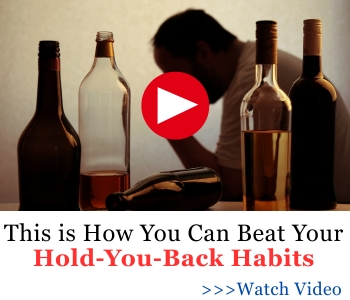 But it’s also a trap.
But it’s also a trap.
AskAPrepper.com author James Walton recently shared a story about his grandfather, a WWII vet who survived the horrors of war, but became a heavy drinker afterwards.
It doesn’t have to be industrial spirits like Everclear or grain alcohol. Even familiar comforts like whiskey, rum, or vodka can slowly chip away at your focus and discipline.
A bottle of wine shared around the fire might feel like a morale boost. But one drink dulls your senses and two cloud your thinking. Depend on it too much, and you’re in withdrawal at the worst possible time.
Use alcohol for what it is: a utility. Whiskey can be barter gold. Wine can boost calories or lift spirits in small, controlled doses. But don’t let any of it become an escape. When everything’s falling apart, your mind is your greatest asset. Don’t sabotage it.
“When alcohol has its claws in someone, they will go to great lengths to get what they want. You can leverage this in an SHTF situation should you have alcohol to barter” – James Walton
Medications
Antibiotics and painkillers are medical force multipliers when hospitals are smoking ruins. They can stop infections that would’ve killed our ancestors and manage pain that could drive you insane.
But expired or misused pharmaceuticals can kill you faster than the conditions they’re meant to treat.
Out-of-date antibiotics might be useless or toxic. Misusing them breeds antibiotic-resistant superbugs that no medicine can touch. Painkillers mask injury severity, create dependency, and are easy to overdose on when you’re desperate for relief.
>> Most Preppers Don’t Know This Trick to Get Antibiotics Without a Doctor’s Visit
Your medical cache isn’t a comfort blanket. It’s precision equipment. Know your dosages like you know your weapon systems. Rotate stock religiously. Understand drug interactions. Because when there’s no pharmacy to save you from your mistakes, precision matters.
Fire
Fire is humanity’s oldest technology and your pathway to survival. It cooks food, purifies water, provides warmth, signals for help, and keeps predators at bay.
But fire is chaos barely contained, and it’s always looking for a chance to break free.
One unattended flame, one gust of wind, one knocked-over lantern, and your entire base of operations becomes a funeral pyre. Without fire departments coming to save you, that small cooking fire can consume everything you’ve worked to build.
Even minor burns can go septic without proper medical care. Smoke inhalation kills faster than you think. And curious children plus open flames equals disaster.
Fire serves you only as long as you respect it completely. Never leave it unattended. Always have multiple suppression methods ready.
Gasoline & Fuel
Fuel powers your generator, charges your comms, runs your transportation, and operates power tools. Without it, you’re stuck in the stone age while others maintain technological advantages.
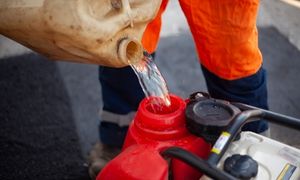 But gasoline is concentrated destruction waiting for a spark.
But gasoline is concentrated destruction waiting for a spark.
Store it improperly, and one static discharge turns your retreat into ground zero. The fumes alone can poison you in enclosed spaces or cause explosions that’ll be heard for miles. Spills contaminate water sources and soil for years.
Even worse? Word gets out that you’re sitting on fuel reserves, and you become a high-value target for every desperate group within walking distance.
Treat every gallon like it’s dynamite. Use proper containers, ensure adequate ventilation, and maintain operational security about your reserves. Fuel is power, but only if you live to use it.
Batteries
Batteries keep your essential electronics operational when the grid dies. Radios, flashlights, night vision, medical devices: all worthless without reliable power sources.
But old, damaged, or improperly stored batteries can sabotage your gear when you need it most.
Leaking batteries destroy electronics with corrosive acid and can burn skin on contact. Mixing battery types or using damaged chargers risks fires or explosions. Even “dead” batteries can retain enough charge to cause problems.
Your electronics are only as reliable as their power source. Test regularly, rotate stock, and store properly.
Salt
Salt is basically survival chemistry. It preserves meat without refrigeration, maintains critical electrolyte balance, and makes survival rations palatable enough to actually eat.
But sodium is a double-edged blade that cuts both ways. Too much salt without adequate water intake causes dehydration, spikes blood pressure to dangerous levels, and can damage kidneys, all potentially fatal when medical intervention isn’t available.
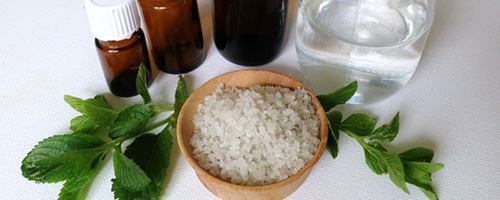
Use too salt little when preserving meat, and you’ll spoil your entire protein cache.
All-in-all, salt is essential. But precision matters. Learn proper meat preservation ratios. Monitor your intake. Balance sodium with water consumption.
Canned Food
Canned goods are preppers’ best friends: long shelf life, high calorie density, no refrigeration required, and ready to eat. They’re the backbone of any serious food storage program.
But one compromised can could end your story in hours.
Botulism thrives in damaged cans and produces toxins that kill faster than most people realize. Swollen, dented, or rusted cans are biological weapons waiting to detonate in your digestive system. Rely solely on canned goods, and you’ll develop nutritional deficiencies that compromise your immune system when you can least afford weakness.
Inspect every can like it’s an IED, because a bad one might kill you just as dead. Rotate stock ruthlessly. Diversify your food storage.
Duct Tape
Duct tape patches shelters, improvises repairs, secures gear, and can even handle emergency medical situations. If something’s broken, duct tape can probably fix it temporarily. Problem is that temporary fixes have a nasty habit of failing when you need them most.
Another thing is that if you use duct tape incorrectly on skin, you risk serious infections. Trust it for critical repairs, and it might fail under stress. Duct tape buys you time, but it’s not a permanent solution to serious problems.
If you ask me, duct tape is a tactical pause, not a strategic solution. Use it to buy time for proper repairs. Don’t trust it for life-critical applications.
Final Thoughts
Every item in your bug-out bag, every tool in your cache, every supply in your retreat can save your life—or end it. The difference isn’t in the gear itself; it’s in your understanding of that gear.
Remember that prepping is about mastering the tools that’ll keep you breathing when everything else falls apart. Don’t let ignorance be the thing that kills you. Your survival depends not just on what you carry, but on what you know about what you carry. Stay sharp. Stay alive.
If you’re serious about protecting your gear—and yourself—there’s one underrated project worth looking into: The Easy Cellar. It’s a simple way to build your own underground shelter that doubles as secure storage for food, water, weapons, and anything else you can’t afford to lose when the lights go out. Check it out here (it will cost you less than an iPhone)!
You may also like:
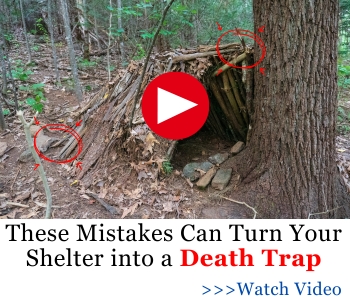
Items That Will Get You on FEMA’s Radar
How To Build The Amish Graywater System and The Biomass Stove (Video)
These Items Will Make You Rich Post-SHTF
Overrated Prepping Items We Have To Stop Praising
Read the full article here





